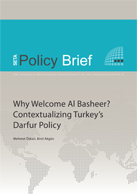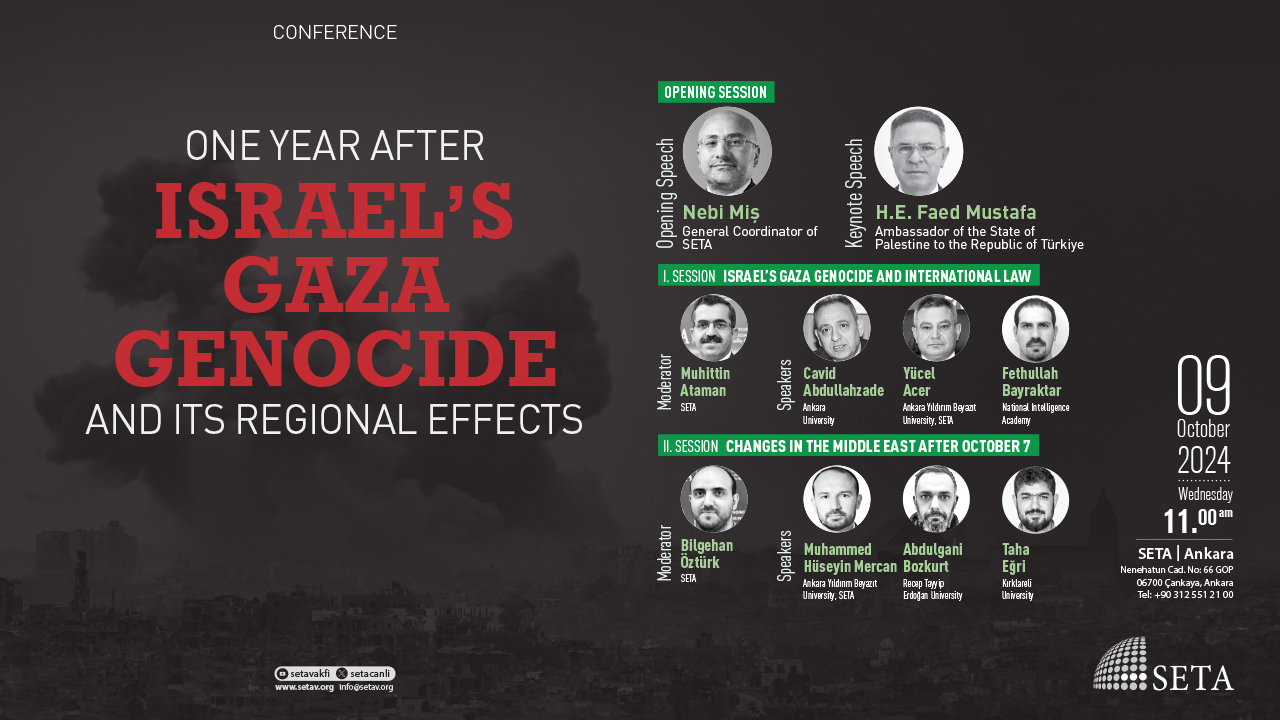Ankara’s distinctive approach to Darfur and Khartoum requires a thorough, in-depth analysis within the context of Turkey’s changing role in regional and global affairs.
This study analyses the underlying elements of the Muslim world’s reaction toward the Darfur crisis by critically evaluating Turkey’s involvement. Turkey is important because it has been cited as a rising star of 21st century in the Muslim world not only for its growing economic potential and deepening democratic credentials, but also with its recent pro-active diplomatic initiatives in conflict areas such as in the Middle East, the Balkans and the Caucasus.
Turkey’s Darfur policy has been one of its most criticized in recent times. Although the criticisms leveled against this policy have some merit, they do not provide much insight into the motivations behind Turkey’s approach to Darfur. Thus, Ankara’s distinctive approach to Darfur and Khartoum requires a thorough, in-depth analysis within the context of Turkey’s changing role in regional and global affairs. It is argued that on the Darfur issue, Turkish policy has been characterized by convergence and distinction from the official position of the Muslim-Arab world.
We argue that the Turkish approach to Darfur has been mainly shaped by three elements: the international environment/discourse on “the war on terror” since 2002; Turkey’s recently deepening political and economic engagement with the Arab world and Africa; and Ankara’s search for a new political “language” on Darfur, a middle ground between the West’s claims of “genocide” and defending al Basheer. In sum, Turkey’s Darfur policy can be described as an example of “passive quiet diplomacy” in a highly complex international environment.
Introduction: What is at Stake? Since 2003, a conflict has been ongoing in Darfur. Although a fragile peace agreement has been signed and elections took place in April 2010, the situation on the ground is still far from a lasting peace. The exact number of the death toll in the Darfur conflict remains the subject of speculation. Nevertheless, the range is estimated as anywhere from 200,000 to 400,000. To the surprise of many, this total is two to four times the toll of the Bosnian wars of the 1990s,1 while reaction from Turkey and Turkish civil society have been extremely low in comparison to the conflicts in Bosnia and Kosovo. Turkey’s Darfur policy today stands as one of the most criticized and less understood topics in Turkish foreign policy. Why is this so? What are the main determinants of Turkey’s approach to Darfur? Is it an example of a “double-standard” or does it flow from Turkey’s new and evolving foreign policy? Here, the central question is to what extent Turkey’s Darfur policy is driven by political and economic considerations or is characterized by a bias for its Muslim brethren or umma.
This brief tries to portray the underlying elements of the Muslim world’s reaction toward Darfur by critically evaluating Turkey’s involvement in the conflict. Turkey is important because it has been cited as a rising star of 21st century in the Muslim world not only for its growing economic potential and deepening democratic credentials, but also with its recent pro-active diplomatic initiatives in conflict areas such as in the Middle East, Balkans and Caucasia. Turkey is not an Arab country, therefore, not a party to the Darfur conflict from an ethnical point of view, nor a country that initially showed no interest in the conflict. However, Turkey as a rising p










